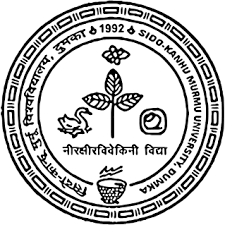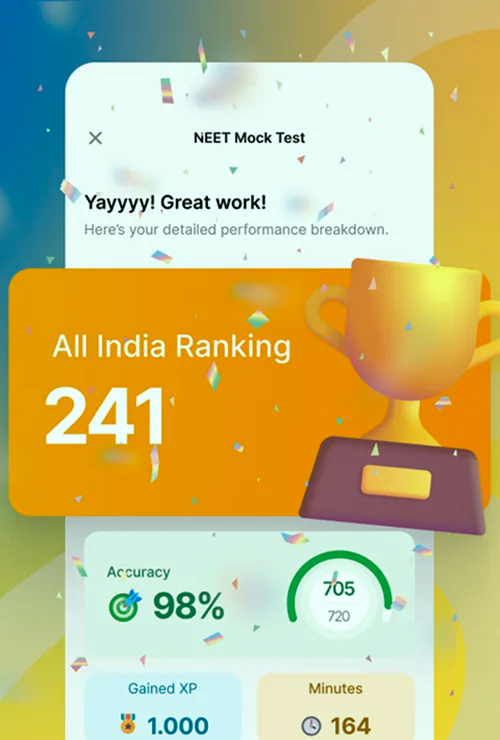General Information
Sido Kanhu Murmu University (SKMU), headquartered in Dumka, Jharkhand, is a public State University. It was established on January 10, 1992, by an Act of the Bihar Legislative Assembly (as Siddhu Kanhu University), carving it out from Bhagalpur University. Following the creation of Jharkhand in 2000, it came under the jurisdiction of the new state and was renamed Sido Kanhu Murmu University in 2003, honoring the leaders of the Santhal rebellion.
Its primary mission is to provide accessible higher education to the tribal and rural populations of the Santhal Parganas division. It operates as a teaching-cum-affiliating university, running various postgraduate departments on its main campus (Dighi Campus) and providing academic governance to a large number of constituent and affiliated colleges (including Medical, Dental, Engineering, and B.Ed colleges) spread across the six districts of its jurisdiction: Dumka, Deoghar, Godda, Jamtara, Pakur, and Sahibganj.
Key Recognitions:
Established by a State Act and recognized by the University Grants Commission (UGC) under Section 12(B).
Accredited by the National Assessment and Accreditation Council (NAAC) with a 'C' Grade (Note: Grades are periodic; check the latest cycle, though 'C' was a widely reported grade).
Holds necessary approvals from relevant professional bodies like NCTE (Education), AICTE (Engineering), BCI (Law), NMC (Medical), DCI (Dental) for the specific programs offered through its affiliated colleges.
MCI Recogination
Permitted u/s 10(A) for 2019-20 vide order dated 19.08.2019 of the Honble Supreme Court. Not permitted for renewal u/s 10 (A) for 2020-21, Permitted for Renewal of 100 seats for the academic year 2022-23. Permitted (3rd renewal) and 4th batch for the Academic Year 2023-2024. Annual renewal permission granted for 100 MBBS seats for AY 2024-25.
Campus Facilities
The Campus: Administrative & PG Hub in Dumka
SKMU operates from its main campus in Dumka.
Location: Situated at Dighi Campus, Dumka-Pakur Road, Dumka, Jharkhand.
Campus Size & Vibe: The campus is spread over a substantial area (often cited around 109 acres), providing a spacious, green, and relatively quiet environment for postgraduate studies and university administration, typical of a regional state university.
Infrastructure & Facilities:
Academic Departments: Buildings housing the various postgraduate teaching departments (Faculties of Humanities, Social Science, Science, Commerce, etc.).
Central Library: A key resource with a significant collection of books (90,000+ textbooks, 10,000+ reference books), theses, and digital access (INFLIBNET e-journals).
Laboratories: Equipped labs supporting practical work in various science disciplines (Physics, Chemistry, Botany, Zoology, Geology, Computer Science) offered at the PG level.
Learning Spaces: Lecture halls, seminar rooms, classrooms, virtual classroom facilities.
Residential Facilities: Hostel accommodation for students is available.
Amenities: Administrative offices, Health Centre providing basic medical aid, canteens, potentially a bank/ATM, sports facilities (grounds/courts).
Hospital & Medical Facilities
Leading tertiary care hospital attached to the institution
Healthcare Connection: Affiliating Role for Medical/Dental
It is crucial to understand SKMU's role in health education; it is purely affiliating.
No Constituent Medical College: Sido Kanhu Murmu University does not have its own constituent Medical College offering the MBBS degree, nor does it operate its own large general teaching hospital.
Affiliation Role: The university acts as the affiliating university for health science colleges within its jurisdiction. This includes:
Medical: The Phulo Jhano Medical College and Hospital (PJMCH), Dumka, a government medical college, is affiliated with SKMU for its MBBS degree.
Dental: Potentially affiliated dental colleges (like Vananchal Dental College - verify affiliation as NPU is also mentioned).
Health-Related Programs (Campus): The university's own campus focus is on Life Sciences (Botany, Zoology), not clinical training. It provides basic medical support via its on-campus Health Centre.
Fee Structure
State University Affordability
Fee Structure: State University Affordability
Being a state university, SKMU's fees for its regular, government-aided programs on campus are extremely affordable. Self-financed courses (like MBA, BCA/BBA in affiliated colleges) and fees at affiliated private colleges will be higher.
City Details
Hostel & Mess
Campus Living: Hostel Facilities at Dighi Campus
SKMU provides residential facilities, primarily for students enrolled in its on-campus postgraduate programs.
Availability: Yes, the university provides separate hostel facilities for boys and girls on its Dighi campus. Allotment is usually based on merit, category, and distance.
Facilities: Hostels offer basic furnished accommodation (often 2-person sharing rooms), common rooms, dining halls (messes), 24x7 security, warden supervision, and essential amenities.
Mess System: Each hostel typically operates its own mess providing regular meals, managed on a dividing or fixed-rate system. Food quality is generally reported as simple/average.
Cost: As a state university, the combined cost for hostel accommodation and basic mess food is generally very economical. Expect annual charges to be highly affordable (e.g., room rent ~₹1,200 - ₹1,600 per year, mess charges extra per month).
Miscellaneous
Admissions & Career Pathways: State Portal & Regional Focus
Getting Admitted:
UG & PG (Non-Professional): Admission to most BA, B.Sc, B.Com courses in affiliated colleges and MA, M.Sc, M.Com programs on campus is managed through the Jharkhand Chancellor's Portal (jharkhanduniversities.nic.in). This is a centralized, merit-based process based on marks in the qualifying examination (Class 12 for UG, Bachelor's Degree for PG).
CUET: The university is increasingly adopting CUET-UG and CUET-PG scores for admission to various on-campus and affiliated college programs. It is essential to check the current year's admission notification to see which courses mandate CUET scores.
MBBS / BDS: Admission is strictly based on rank in the NEET-UG examination, followed by JCECEB (Jharkhand Combined Entrance Competitive Examination Board) counselling.
B.Tech (Affiliated): Admission to affiliated engineering colleges is strictly based on rank in the JEE (Main) examination, followed by JCECEB counselling.
B.Ed: Admission is through the Jharkhand B.Ed Combined Entrance Competitive Examination conducted by the JCECEB.
MBA: Admission is often based on scores from national tests like CAT/MAT/CMAT/XAT/ATMA, followed by university-level counselling/GD/PI. Vacant seats might be filled through the Chancellor's Portal/merit.
Ph.D.: Admission involves qualifying the University Entrance Test (conducted by JCECEB or SKMU) followed by interviews. NET/JRF qualified candidates are typically exempted.
Career Support (Placements):
Focus: SKMU has a placement cell that facilitates opportunities. For the vast majority of graduates (especially from Arts, Science, Commerce), the primary career path remains preparation for competitive examinations for government jobs (JPSC, UPSC, Banking, SSC, Railways), teaching positions (NET/JRF/B.Ed), or employment in the regional industrial and social sectors (Santhal Parganas region).
Campus Placements: Direct campus placements are more common for professional courses like MBA, MCA, BBA/BCA. Recruiters often include local/regional companies, banks (ICICI, HDFC), IT service firms (TCS, Wipro, Infosys), and companies like Amazon or Flipkart for service roles.
Outcomes: Placement success varies. The university reports a high placement rate (70%+) and a highest package of ₹10 LPA-15 LPA, with an average package around ₹2-4 LPA. The university plays a critical role in providing accessible higher education and skilled manpower for the Santhal Parganas region.
Information for NRI / Foreign Nationals
As a regional State University, SKMU's processes are heavily focused on domestic students.
Collage Images Gallery
Facilities & Campus Life
Well-equipped Library
Experienced Faculty
Computer Lab
Sports Activities
Heritage Campus
Frequently Asked Questions
Why Consult With Us?
- 15+ years of experience in medical education counseling
- 5000+ students successfully guided
- 50+ partner universities worldwide
- Free initial consultation with no obligation














